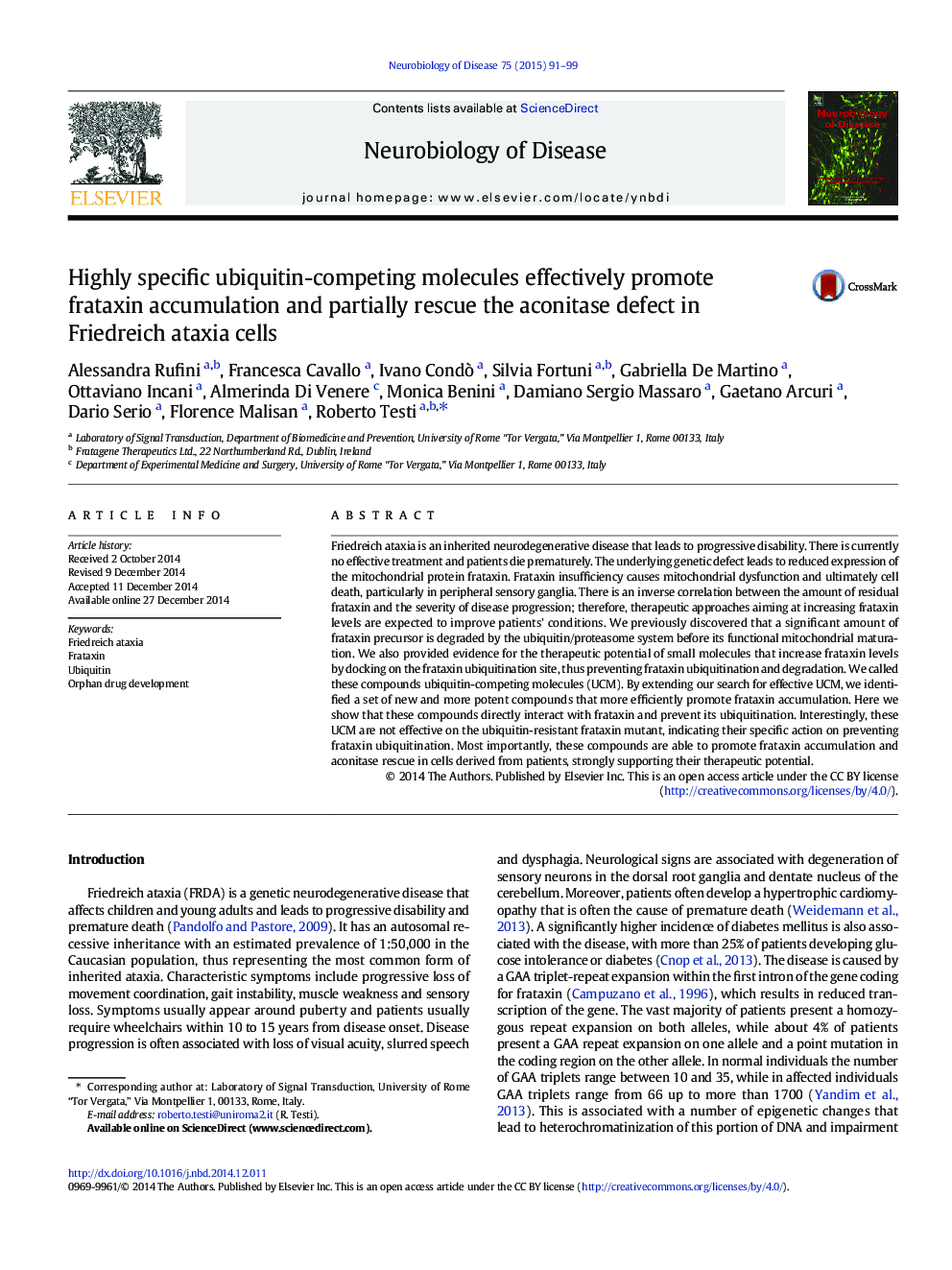| Article ID | Journal | Published Year | Pages | File Type |
|---|---|---|---|---|
| 6021849 | Neurobiology of Disease | 2015 | 9 Pages |
Abstract
Friedreich ataxia is an inherited neurodegenerative disease that leads to progressive disability. There is currently no effective treatment and patients die prematurely. The underlying genetic defect leads to reduced expression of the mitochondrial protein frataxin. Frataxin insufficiency causes mitochondrial dysfunction and ultimately cell death, particularly in peripheral sensory ganglia. There is an inverse correlation between the amount of residual frataxin and the severity of disease progression; therefore, therapeutic approaches aiming at increasing frataxin levels are expected to improve patients' conditions. We previously discovered that a significant amount of frataxin precursor is degraded by the ubiquitin/proteasome system before its functional mitochondrial maturation. We also provided evidence for the therapeutic potential of small molecules that increase frataxin levels by docking on the frataxin ubiquitination site, thus preventing frataxin ubiquitination and degradation. We called these compounds ubiquitin-competing molecules (UCM). By extending our search for effective UCM, we identified a set of new and more potent compounds that more efficiently promote frataxin accumulation. Here we show that these compounds directly interact with frataxin and prevent its ubiquitination. Interestingly, these UCM are not effective on the ubiquitin-resistant frataxin mutant, indicating their specific action on preventing frataxin ubiquitination. Most importantly, these compounds are able to promote frataxin accumulation and aconitase rescue in cells derived from patients, strongly supporting their therapeutic potential.
Keywords
Related Topics
Life Sciences
Neuroscience
Neurology
Authors
Alessandra Rufini, Francesca Cavallo, Ivano Condò, Silvia Fortuni, Gabriella De Martino, Ottaviano Incani, Almerinda Di Venere, Monica Benini, Damiano Sergio Massaro, Gaetano Arcuri, Dario Serio, Florence Malisan, Roberto Testi,
